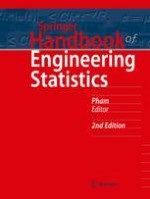2023 | OriginalPaper | Buchkapitel
55. Weighted Voting Systems
verfasst von : Hainan Zhang
Erschienen in: Springer Handbook of Engineering Statistics
Verlag: Springer London
Aktivieren Sie unsere intelligente Suche, um passende Fachinhalte oder Patente zu finden.
Wählen Sie Textabschnitte aus um mit Künstlicher Intelligenz passenden Patente zu finden. powered by
Markieren Sie Textabschnitte, um KI-gestützt weitere passende Inhalte zu finden. powered by
